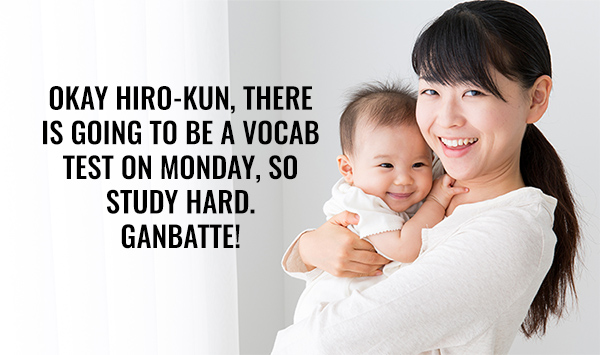Have you ever had that experience of a Japanese person looking at you as though you are an alien from outer space when you speak to them in English? It’s the world’s most commonly spoken second language but in Japan the spoken fluency rate is abysmally low.
In fact, in this year’s edition, Education First puts Japan at 53rd out of 100 countries measured on English proficiency. The number has been dropping steadily for years. So why does Japan have such low rates of English ability compared to countries that have less than half the time in school and spend far less money on education?

Everyone has their own theory on why Japanese people can’t speak English very well, but I think that there are three main factors that mean that not only can Japanese people not currently speak English well, but that they won’t be able to in the near future without serious cultural change.
Japanese Identity
Japanese cultural identity is complicated. In western countries, being a member of that culture in the majority of people’s eyes is a case of fitting in with the cultural values. If you hold British values when you live in the UK, for example, you are British. Perhaps also having a British accent contributes to that as well. It doesn’t matter in my home country which race you are when it comes to being a part of that culture. No matter how long you live in Japan, a non-Japanese person will never be considered Japanese.

As mixed race Japanese, Ariana Miyamoto (left) and Naomi Osaka (right) both had very different reactions from Japanese people.
In Japan being Japanese is about both looking and thinking like a Japanese person. If you’ve taught in schools and met Japanese children who are mixed race, or even who just look a little different, they will be treated in some ways as outsiders. I once taught a girl who was one quarter eastern European, and had spent her whole life in Japan and couldn’t speak any other languages, but she was treated like a foreigner in a lot of places. She told me that she is frequently offered an English menu at restaurants just based on how she looks, and even told me that Japanese teachers at her school treated her differently than her classmates.
Another boy I taught in a junior high school in Nagoya had the opposite problem. He was Japanese ethnically, but had spent most of his life in the UK and spoke English with a North London accent. Knowing how important it was to fit back in with Japanese people, he refused to speak up in English classes and even pretended to be unable to speak English very well. I asked him why and he said he didn’t want to be bullied and he wanted to fit in, which meant not speaking English. I couldn’t blame the boy, but I just felt it was such a shame.
Fit in, is the right word here. We’ve all heard that old Japanese idiom that “the nail that sticks out is hammered down”, but it goes a lot deeper than this. This is why so many so-called ハーフ and foreign-born children who speak Japanese as a native language really struggle going through the public school system in Japan. They are not accepted to have Japanese identity. The nail is already all the way down, but it keeps getting hammered.
So when the culture is segregated into the Japanese and the other (Gaijin or Gaikokujin), is it any wonder that people who want to fit into the culture are less likely to take the social risk of speaking English?
Terrible ideas around language learning
The Japanese government has no idea how to encourage speaking of English in schools or in the culture at large, and businesses in Japan have no incentive to actually teach the language to an effective level.
I was surprised that not many Japanese people have sued eikaiwas or jukus for not teaching their children English despite years of tuition and faithful study in classes. When I taught at eikaiwas I had students in their teens who had been going to eikaiwa classes weekly for ten years, and yet could hardly string a sentence together. The question to ask is what teaching methods and structures have lead to such terrible outcomes.
Chomsky’s debunked language learning methods are rife in Japan – the idea that we have an innate mental modal for grammatical structures is harmful to language education, and any of you who have taught in public schools will be very aware of this. The whole Japanese curriculum is built around learning grammar by rote, and the inability of most Japanese language learners to speak indicates how flawed this way of thinking about language education is.
Despite a lot of scientific language research going back decades showing the flaws in the Chomskyan modal (in my opinion, notably that children acquire language through reading other people’s intentions), Japanese school systems continue to force-feed grammatical structures through textbooks largely written in Japanese. It doesn’t work and we know that, but it doesn’t change because there are too many people making decisions about English language education who can’t speak English and who follow this outdated and debunked model.
Focus on study, not on connecting with human beings
There’s this almost constant phrase you’ll hear from Japanese people, insisting that either they are studying English very hard, or that they feel a need to study English more. It’s very rare for a Japanese person to tell you that they really want to get to know a foreign friend better, so they want to practice English so they can connect with them. All languages are tools for connecting with other human beings. This is why we call it a mother tongue; our mothers never told us to study wordlist number 4 and the grammar points on page 17 so we could have a test on Monday… we love our families so we learn language in order to connect and communicate our needs with them.

The focus on English language as a test, particularly the University Entrance Exams, and not as a means of communication and expression, is a big part of the problem.
This influences and ultimately kneecaps the whole school experience of learning English. English is just a subject in school, and is never presented as the tool for connection and communication that it really is. As a subject, it is something to be studied, or an academic puzzle to put together like all of those tiresome gap-fill exercises and spot the error sentences. This focus on academic English turns the language from something we learn naturally as a communication method, into something heady and distinctly not fun. In fact, 30% of elementary first grade students (only 6 years old) dislike their English classes.
On the other side we have the eikaiwa system, where children are sent typically for an hour a week to practice English conversation. As mentioned earlier, companies in Japan have little to no incentive to teach actual English, but they have a HUGE incentive to make the lessons fun so the children want to come back. It can’t be expected that the average English teacher in Japan will be able to get great results out of an hour a week, but they can make it really fun with very little actual learning taking place. A lot of mums treat English classes as a badge of honour, and at the same time a socially acceptable “learning club” for their children.
Can we fix it?
Japanese have a saying: 前例がない (Zenrei ga nai – it’s never been done before) and this attitude makes it very hard to make radical changes in English language education. However, the younger generations have much higher English language levels than older generations. Even if it isn’t great compared to other countries, the age demographic of 25-34 has the highest English ability in the Japanese population and in my short time in Japan I’ve seen improvements especially in the cities. In Japan, almost all change takes a lot longer than in the West in part due to the hierarchy of values here being based on age over merit. My hope is that when the young people who speak English take over senior positions, they will have a better understanding of what can be done to fix at least public language education.
Until Japanese schools start hiring foreign qualified teachers as main teachers in the classroom rather than the segregated ALT system that clearly doesn’t work, chances are language skills won’t improve. The difference between my teaching as an ALT and being a main teacher is night and day. After a year in even my lowest level classes where I am the main teacher I can have full conversations with almost all of my students, whereas in public schools I can barely get past asking their names and what the weather is like.
We also have to take responsibility as language teachers to do more to make a difference for our students. Our job isn’t simply to disseminate information but to make relationships with our students that make them want to learn the language. I’ve met some passionate and committed teachers in Japan and they always have more fun teaching and better classes. It can’t be a coincidence that passionate teachers who share their lives with their students also have the highest level speakers. We can’t wait for the Japanese government to somehow fix this problem – we would be waiting a long, long time.


